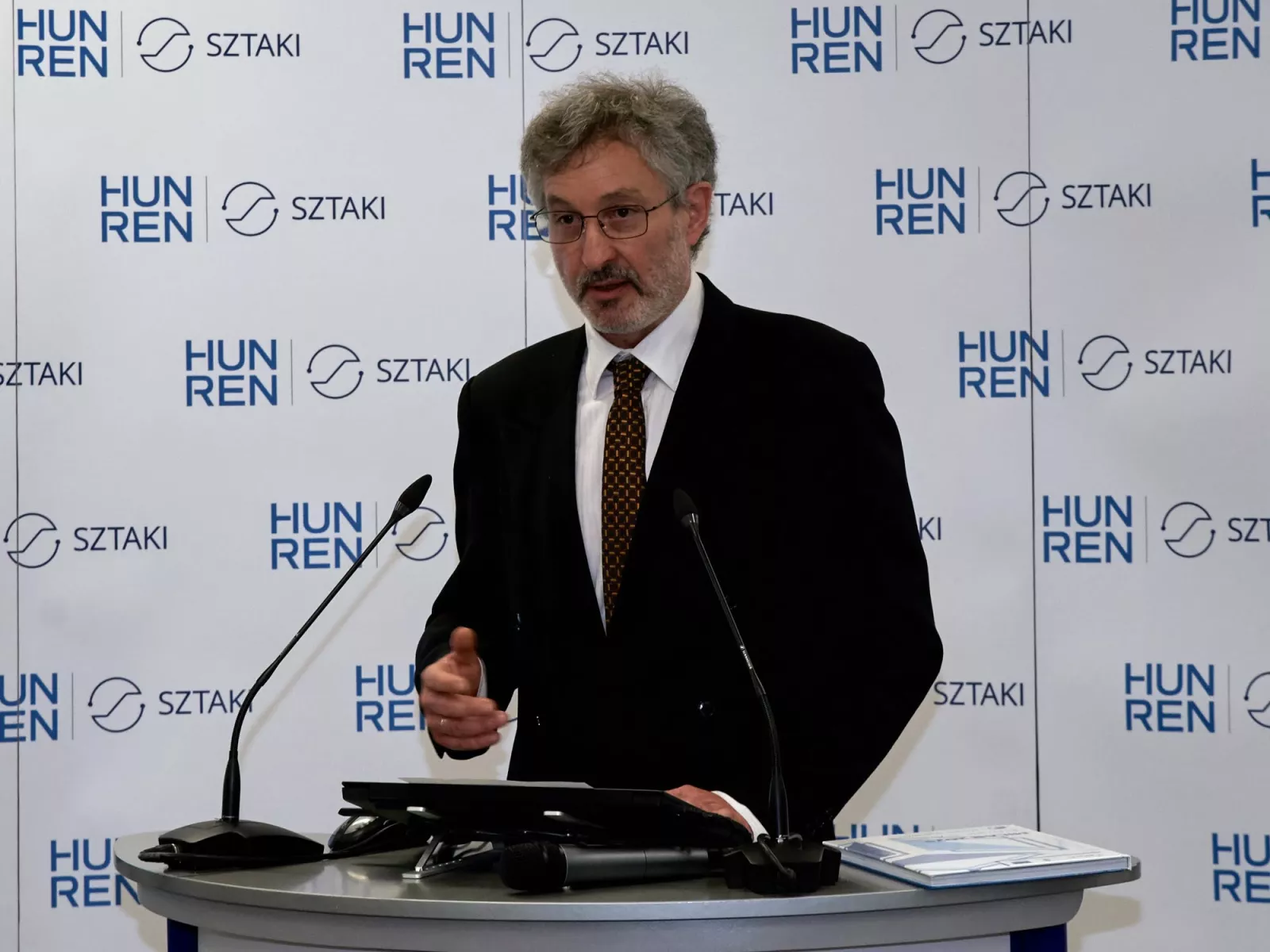
Established in 2020 under the leadership of HUN-REN SZTAKI, the Artificial Intelligence National Laboratory (MILAB) operates through the collaboration of five universities, three additional research institutes, and two governmental bodies. Its goal is to strengthen Hungary's international position in artificial intelligence research and application. At the press conference held on June 2, 2025, MILAB’s professional partners briefly presented their achievements in the field of AI.
In recent years, the research and development projects carried out have delivered tangible results across a wide range of fields. The research conducted within the framework of MILAB is not only of scientific significance but also offers direct industrial and societal benefits — from energy network management and manufacturing optimization to the digitalization of public administration and healthcare applications.
“Hungary was one of the first in Europe to establish a national artificial intelligence strategy and has since become a stable player in technological progress. The Artificial Intelligence National Laboratory is one of the most successful research collaboration structures in the country, creating a direct link between science, industry, and society. The current goal is to develop a comprehensive competency map in Hungary that provides an accurate picture of who is working on what and where in AI development. AI development is not merely a technological issue but also a matter of values — it's about the kind of future we want to build together,” said Prof. Dr. László Palkovics, Government Commissioner for Artificial Intelligence, at the press conference.
“Artificial intelligence is fundamentally transforming the operation of various industries. We must both keep pace with this development and aim to lead in certain areas. Establishing MILAB was a wise decision, as it allowed us to consolidate Hungary’s university and research institute capacities in this domain. The laboratory’s research could give rise to numerous successful Hungarian deep tech companies in the future,” said László Bódis, Deputy State Secretary for Innovation at the Ministry of Culture and Innovation, and CEO of the National Innovation Agency.
Roland Jakab, CEO of HUN-REN and Chairman of the Artificial Intelligence Coalition, emphasized that artificial intelligence is not just a technological innovation, but also a potential catalyst for economic and societal breakthroughs. “Since its foundation, MILAB has generated over 2 billion forints in direct industrial utilization revenue for its partners, which clearly shows how connecting research excellence with industrial collaboration can become a real competitive advantage for Hungary,” stated Roland Jakab.
“There’s a significant momentum in AI research in Hungary today, and it must be sustained. We are proud that HUN-REN SZTAKI is one of the driving forces behind it,” said Prof. Dr. László Monostori, Director of HUN-REN SZTAKI. He noted that the institute has always built its practical results on targeted fundamental research. He highlighted that AI research has essentially been a constant in SZTAKI’s 60+ year history — he himself organized international conferences on machine learning in Budapest as early as the 1990s. Among recent successes, he highlighted the AI&AUT EXPO and the AI Symposium organized by HUN-REN, and underlined the importance of further developing the ecosystem related to AI research and its practical use.
Dr. András Benczúr, MILAB’s Scientific Director and Head of AI Laboratory at HUN-REN SZTAKI, stated that over the past four years, MILAB has successfully consolidated resources and fostered collaboration among researchers and with industry players. Many research outcomes have already been applied in practice. A publication was also completed, summarizing the most important scientific results and applications — some of which were presented today by MILAB’s partners. He emphasized the importance of continuing this work, maintaining the established innovation ecosystem, and further strengthening their international presence.
As part of the program, MILAB’s industrial and institutional partners showcased practical applications of artificial intelligence. The Hungarian State Treasury presented AI solutions supporting the digitization of pension records. Bosch highlighted its university collaborations, work in robotics, and knowledge bases built on large language models. MAVIR applies AI in forecasting solutions for the energy grid, contributing to system stability. Ericsson shared its AI developments in radio communications and networks. Nokia presented AI-based solutions for network protection.
Audi Hungaria demonstrated its data-driven approach to quality control in manufacturing and simulation processes, where AI plays a prominent role. In the healthcare sector, the Városmajor Heart and Vascular Center of Semmelweis University and the Buda Health Center presented how AI supports diagnostics and improves the quality of patient care.
MILAB remains committed to bridging the gap between scientific excellence and practical applications in artificial intelligence, thereby fostering Hungary’s digital and technological advancement.